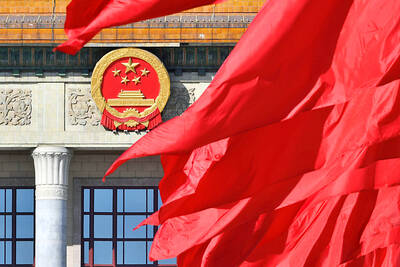Speculators betting on a revaluation of the Malaysian ringgit peg to the US dollar may be in for a long wait amid mixed signals in recent weeks over the seven-year-old fixed exchange rate policy.
Most analysts agree that the ringgit, fixed at 3.80 to the US dollar since 1998 after the Asian financial crisis, is undervalued by around 10 percent and should be allowed to strengthen.
But the question is whether Prime Minister Abdullah Ahmad Badawi -- only two years into office -- will risk upsetting the currency regime in what could prove an unpopular move.
"The general sense we get is that Malaysia is seriously considering doing away with the peg regime but is holding back due to political inertia," said Ramya Ramachandran, economist with Singapore-based IDEAglobal. "We still assign a 60 percent chance of a de-peg this year."
Economists say speculation since late last year about currency reform has led to an influx of foreign investment in ringgit-denominated assets as investors flock to the market hoping for a quick profit.
Credit Suisse First Boston's senior regional economist Sailesh Jha said portfolio flows as a percentage of GDP have surged to 8 percent last year from 2.8 percent in 2003.
But inflationary pressures were still benign and the central bank has adequate reserves to cope with any capital flight in case of a ringgit re-peg.
Some economists believed Malaysia's decision on the ringgit is tied to China's foreign exchange policy. If the yuan is loosened, Malaysia is expected to follow suit to ensure it remains competitive in the export markets for electrical and electronic products.
However, CSFB said in a recent report after meeting senior Malaysian officials and bankers that it believed Malaysia would stick to the peg this year even if China allowed its yuan to appreciate by 3 percent to 5 percent by the middle of this year.
The central bank last week reiterated the ringgit was still fairly valued and ruled out any moves to free-float the currency because it could lead to volatility. However, it left open the possibility for a "better exchange mechanism."
Abdullah took over in October 2003 from Mahathir Mohamad, who imposed the peg as part of capital controls in September 1998 to protect the economy during the Asian financial crisis. But even Mahathir has also joined in calls for a ringgit revaluation.
The Malaysian Institute of Economic Research said the country's large trade and current account surpluses suggested a serious exchange rate misalignment, and warned the peg was already hurting the economy as seen in large speculative inflows in the money market, a soaring import bill and rising inflation.
It noted some foreign investors were delaying investments pending anticipated exchange rate changes.

US PUBLICATION: The results indicated a change in attitude after a 2023 survey showed 55 percent supported full-scale war to achieve unification, the report said More than half of Chinese were against the use of force to unify with Taiwan under any circumstances, a survey conducted by the Atlanta, Georgia-based Carter Center and Emory University found. The survey results, which were released on Wednesday in a report titled “Sovereignty, Security, & US-China Relations: Chinese Public Opinion,” showed that 55.1 percent of respondents agreed or somewhat agreed that “the Taiwan problem should not be resolved using force under any circumstances,” while 24.5 percent “strongly” or “somewhat” disagreed with the statement. The results indicated a change in attitude after a survey published in “Assessing Public Support for (Non)Peaceful Unification

The CIA has a message for Chinese government officials worried about their place in Chinese President Xi Jinping’s (習近平) government: Come work with us. The agency released two Mandarin-language videos on social media on Thursday inviting disgruntled officials to contact the CIA. The recruitment videos posted on YouTube and X racked up more than 5 million views combined in their first day. The outreach comes as CIA Director John Ratcliffe has vowed to boost the agency’s use of intelligence from human sources and its focus on China, which has recently targeted US officials with its own espionage operations. The videos are “aimed at

‘MISGUIDED EDICT’: Two US representatives warned that Somalia’s passport move could result in severe retaliatory consequences and urged it to reverse its decision Minister of Foreign Affairs Lin Chia-lung (林佳龍) has ordered that a special project be launched to counter China’s “legal warfare” distorting UN Resolution 2758, a foreign affairs official said yesterday. Somalia’s Civil Aviation Authority on Wednesday cited UN Resolution 2758 and Mogadishu’s compliance with the “one China” principle as it banned people from entering or transiting in the African nation using Taiwanese passports or other Taiwanese travel documents. The International Air Transport Association’s system shows that Taiwanese passport holders cannot enter Somalia or transit there. The Ministry of Foreign Affairs (MOFA) protested the move and warned Taiwanese against traveling to Somalia or Somaliland

SECURITY: Grassroots civil servants would only need to disclose their travel, while those who have access to classified information would be subject to stricter regulations The government is considering requiring legislators and elected officials to obtain prior approval before traveling to China to prevent Chinese infiltration, an official familiar with national security said yesterday. President William Lai (賴清德) in March announced 17 measures to counter China’s growing infiltration efforts, including requiring all civil servants to make trips to China more transparent so they can be held publicly accountable. The official said that the government is considering amending the Act Governing Relations Between the People of the Taiwan Area and Mainland Area (臺灣地區與大陸地區人民關係條例) to require all civil servants to follow strict regulations before traveling to China.